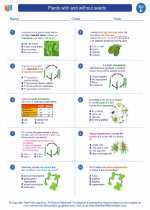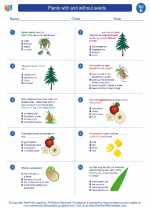Genetic Variation
Genetic variation refers to the differences in DNA sequences among individuals within a population. These variations can occur at the level of genes, chromosomes, or entire genomes.
Sources of Genetic Variation
Genetic variation can arise through several mechanisms:
- Mutation: Mutations are permanent changes in the DNA sequence that can occur spontaneously or as a result of environmental factors such as radiation or chemicals.
- Sexual Reproduction: The process of meiosis and fertilization leads to genetic recombination, where genetic material from two parents is combined in unique ways to produce genetically diverse offspring.
- Gene Flow: The movement of genes between populations through migration can introduce new genetic variants into a population.
- Natural Selection: Differential survival and reproduction of individuals with specific genetic traits can lead to changes in the frequency of those traits within a population over generations.
Importance of Genetic Variation
Genetic variation is essential for the long-term survival and adaptability of a species. It provides the raw material for evolution by natural selection, allowing populations to respond to environmental changes, resist diseases, and adapt to new ecological niches.
Measuring Genetic Variation
Scientists use various methods to study genetic variation, including:
- DNA Sequencing: Determining the precise order of nucleotides in a DNA molecule to identify genetic differences.
- Genotyping: Analyzing specific genetic markers or variants to assess differences between individuals or populations.
- Phenotypic Variation: Observing and measuring differences in physical traits or characteristics to infer underlying genetic variation.
Examples of Genetic Variation
Genetic variation can manifest in numerous ways, including:
- Differences in eye color, hair texture, and skin pigmentation among individuals.
- Variation in disease susceptibility and drug responses due to genetic differences.
- Diversity in traits such as height, intelligence, and behavior within a population.
Conclusion
Genetic variation is a fundamental concept in biology, shaping the diversity of life on Earth and underpinning the processes of evolution and adaptation. Understanding and studying genetic variation is crucial for fields such as medicine, conservation, and agriculture.
[Genetic Variation] Related Worksheets and Study Guides:
.◂Science Worksheets and Study Guides Fifth Grade. Plants with and without seeds

 Worksheet/Answer key
Worksheet/Answer key
 Worksheet/Answer key
Worksheet/Answer key
 Worksheet/Answer key
Worksheet/Answer key
 Vocabulary/Answer key
Vocabulary/Answer key
 Vocabulary/Answer key
Vocabulary/Answer key
